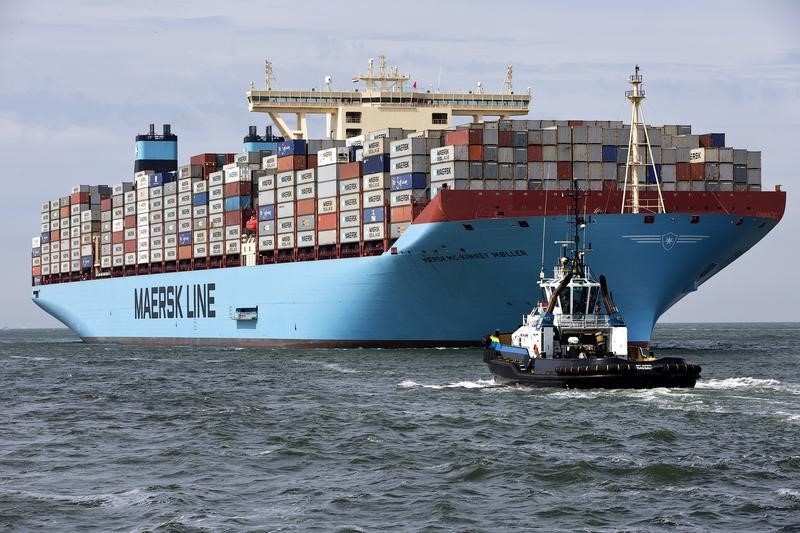TOKYO, Aug 6 (Reuters) - Twelve-nation Pacific Rim trade
talks must better reflect the interests of participants other
than the United States and Japan, rather than centring on their
bilateral agreements, New Zealand Trade Minister Tim Groser told
Japan's Nikkei business daily.
He rejected suggestions, however, that New Zealand had
played a major role in scuttling a possible deal in
Trans-Pacific Partnership talks last week by taking hard line on
dairy market access, according to an interview published on
Thursday.
Negotiators cited a clutch of lingering disputes, including
auto trade between Japan and North America, New Zealand's dairy
exports and monopoly periods for next-generation drugs, that
ministers were unable to resolve when they met to clinch a TPP
agreement.
"The central problem with this negotiation is that it is not
just a bilateral negotiation between the U.S. and Japan," Groser
told the Nikkei in a telephone interview conducted on Wednesday.
"There are 12 countries involved and their interests must be
reflected before we have a balanced agreement."
Groser told the Nikkei that a bilateral U.S.-Japan agreement
on autos did not fully take into account what Mexico and Canada
want, while the pact also did not address New Zealand's
interests in dairy products.
He dismissed suggestions, reported in Japanese media, that
New Zealand got in the way of concluding a deal by pushing for
dairy market access in exchange for concessions on drug data
protection.
"That's a complete misrepresentation of the round in
Hawaii," the Nikkei quoted him as saying.
"The reality is that we were never given even minimal offers
on things that are of interest to New Zealand that we could
accept."
He said no decisions had been made on when to hold the next
round of TPP ministerial talks but he was keen to set a time
quickly, the Nikkei said.
"What is really important is that we maintain momentum. If
we lose momentum, we lose everything," he said.
- English (USA)
- English (UK)
- English (India)
- English (Australia)
- English (South Africa)
- English (Philippines)
- English (Nigeria)
- Deutsch
- Español (España)
- Español (México)
- Français
- Italiano
- Nederlands
- Português (Portugal)
- Polski
- Português (Brasil)
- Русский
- Türkçe
- العربية
- Ελληνικά
- Svenska
- Suomi
- עברית
- 日本語
- 한국어
- 简体中文
- 繁體中文
- Bahasa Indonesia
- Bahasa Melayu
- ไทย
- Tiếng Việt
- हिंदी
NZ Trade Min says TPP must address interests beyond U.S.-Japan -Nikkei
Published 2015-08-05, 11:11 p/m
NZ Trade Min says TPP must address interests beyond U.S.-Japan -Nikkei

Latest comments
Install Our App
Risk Disclosure: Trading in financial instruments and/or cryptocurrencies involves high risks including the risk of losing some, or all, of your investment amount, and may not be suitable for all investors. Prices of cryptocurrencies are extremely volatile and may be affected by external factors such as financial, regulatory or political events. Trading on margin increases the financial risks.
Before deciding to trade in financial instrument or cryptocurrencies you should be fully informed of the risks and costs associated with trading the financial markets, carefully consider your investment objectives, level of experience, and risk appetite, and seek professional advice where needed.
Fusion Media would like to remind you that the data contained in this website is not necessarily real-time nor accurate. The data and prices on the website are not necessarily provided by any market or exchange, but may be provided by market makers, and so prices may not be accurate and may differ from the actual price at any given market, meaning prices are indicative and not appropriate for trading purposes. Fusion Media and any provider of the data contained in this website will not accept liability for any loss or damage as a result of your trading, or your reliance on the information contained within this website.
It is prohibited to use, store, reproduce, display, modify, transmit or distribute the data contained in this website without the explicit prior written permission of Fusion Media and/or the data provider. All intellectual property rights are reserved by the providers and/or the exchange providing the data contained in this website.
Fusion Media may be compensated by the advertisers that appear on the website, based on your interaction with the advertisements or advertisers.
Before deciding to trade in financial instrument or cryptocurrencies you should be fully informed of the risks and costs associated with trading the financial markets, carefully consider your investment objectives, level of experience, and risk appetite, and seek professional advice where needed.
Fusion Media would like to remind you that the data contained in this website is not necessarily real-time nor accurate. The data and prices on the website are not necessarily provided by any market or exchange, but may be provided by market makers, and so prices may not be accurate and may differ from the actual price at any given market, meaning prices are indicative and not appropriate for trading purposes. Fusion Media and any provider of the data contained in this website will not accept liability for any loss or damage as a result of your trading, or your reliance on the information contained within this website.
It is prohibited to use, store, reproduce, display, modify, transmit or distribute the data contained in this website without the explicit prior written permission of Fusion Media and/or the data provider. All intellectual property rights are reserved by the providers and/or the exchange providing the data contained in this website.
Fusion Media may be compensated by the advertisers that appear on the website, based on your interaction with the advertisements or advertisers.
© 2007-2025 - Fusion Media Limited. All Rights Reserved.